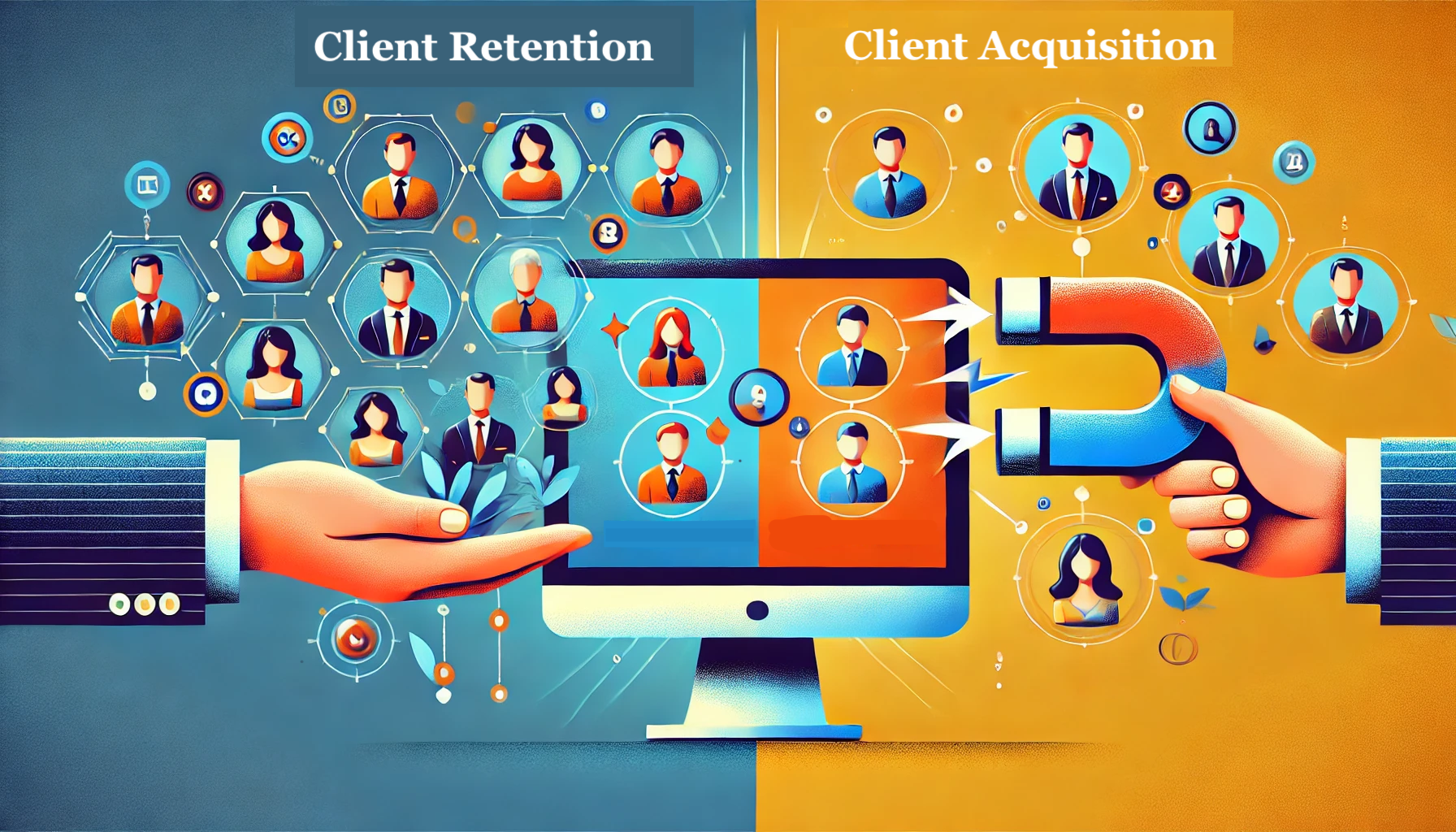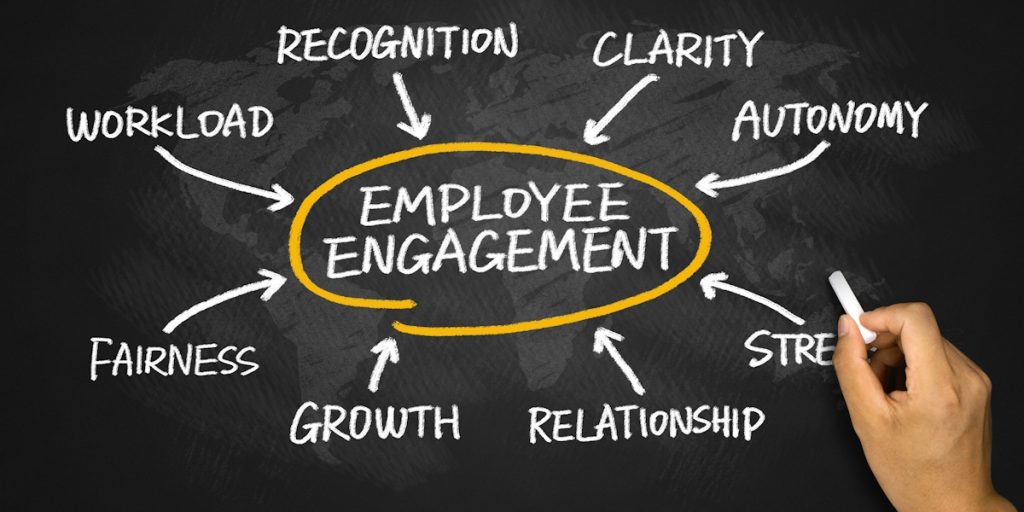Have you ever wondered what truly drives a business to success—bringing in new clients or keeping the existing ones happy? The debate between client retention vs acquisition is ongoing, but data shows that retention is the real winner. While customer acquisition sounds exciting, it comes with higher costs and risks. Retention, on the other hand, is more sustainable, cost-effective, and profitable in the long run.
In this blog, we’ll uncover why businesses should prioritize client retention over acquisition. We’ll also explore strategies like Customer Retention Strategies, leveraging customer lifetime value, and how loyalty can reduce customer acquisition costs for better growth.
Retention Costs Less Than Acquisition
The High Cost of Customer Acquisition
Every new client comes with a hefty price tag. From running ads to offering discounts, acquiring customers is expensive. These Customer Acquisition Costs (CAC) are often higher than businesses anticipate, especially in competitive markets.
In contrast, Customer Retention Strategies focus on keeping existing clients satisfied through personalized communication and loyalty rewards. This makes retention much cheaper and more sustainable than acquisition.
Retention Offers Better ROI
A retained customer provides consistent revenue over time. By focusing on retention, you lower your customer acquisition costs and increase your profits. Satisfied clients also bring in new customers through referrals, making retention a more reliable investment.
Retention Boosts Customer Lifetime Value (CLV)
What is Customer Lifetime Value?
Customer lifetime value (CLV) is the total revenue a client generates during their time with your business. Retention directly increases CLV because long-term customers are more likely to make repeat purchases.
For example, a customer who repeatedly uses your services not only spends more but also costs less to maintain compared to acquiring new clients.
Why is CLV Vital for Retention?
Loyal customers have higher CLV, making them more valuable to your business. They trust your brand and are more open to additional offerings, reducing the need for constant upselling.
Retention Improves Loyalty and Satisfaction
The Importance of Loyalty Programs
Satisfied clients are loyal clients. Offering loyalty programs for clients—such as discounts, points systems, or exclusive perks—encourages repeat business. This creates a win-win situation where clients feel valued, and your business benefits from consistent revenue.
How Retention Builds Trust
Retained clients are more likely to trust your brand. They’ve had positive experiences and know your offerings deliver results. This trust fosters loyalty, reducing churn and increasing repeat purchases.
Repeat Business is More Profitable
The Power of Repeat Customers
Repeat customers buy more often and spend more than new ones. They don’t need heavy convincing, and their trust in your brand makes them reliable revenue generators.
For instance, a loyal customer may take advantage of additional services or products, increasing your profits without added marketing expenses.
Retention Reduces Marketing Costs
Unlike acquiring new customers, retained clients don’t require high-budget campaigns or constant persuasion. With retention strategies like personalized engagement and rewards, you get better results for less investment.
Retention Builds a Strong Brand Reputation
Happy Clients Promote Your Brand
Satisfied clients naturally advocate for your business. Whether it’s a glowing review or word-of-mouth recommendation, they help you attract new clients without additional costs.
Why Reputation Matters?
Your reputation is your greatest asset. Focusing on client retention vs acquisition ensures your brand is known for reliability, quality, and excellent service—all of which attract more clients organically.
How to Prioritize Retention Over Acquisition
Deliver Exceptional Experiences
Your customers remember how you make them feel. Focus on creating seamless and personalized experiences at every stage of their journey. From an easy-to-navigate website to friendly customer service, every interaction matters. When customers feel valued and cared for, they’re more likely to stick with your brand.
Reward Loyalty
Loyalty programs are a simple yet powerful way to retain clients. Offer points for purchases, special discounts, or exclusive perks that make customers feel appreciated. These rewards not only encourage repeat business but also build a stronger emotional connection with your brand. A loyal customer is always more profitable than a one-time buyer.
Stay Connected
Regular communication keeps your brand top-of-mind for customers. Send personalized emails, share updates about new products, and thank them for their support. Tailored messages show that you understand their needs and care about their experience. Building relationships through consistent engagement fosters trust and loyalty.
Act on Feedback
Listening to your customers can uncover valuable insights. Conduct short surveys or ask for feedback after a purchase to understand their preferences and concerns. Address their issues promptly and let them know their input has driven improvements. This proactive approach strengthens trust and loyalty over time.
Provide Reliable Support
When something goes wrong, customers want quick and effective resolutions. Offer multiple support channels, such as email, chat, or phone, to make it easy for them to reach you. Train your team to handle issues empathetically and efficiently. Customers who feel supported are far less likely to leave.
Build Long-Term Relationships
Retaining clients is about creating connections, not just completing transactions. Share valuable content, celebrate milestones like anniversaries, or offer exclusive deals for loyal customers. These small gestures make clients feel appreciated and encourage them to continue their journey with your brand.
Track and Improve
Retention strategies require constant monitoring and refinement. Use metrics like retention rates and churn analysis to identify weak points. Implement changes based on this data to stay ahead of customer expectations. A proactive approach ensures your strategies remain effective and relevant.
By implementing these strategies, you can build a customer base that not only stays loyal but also becomes your brand’s biggest advocate.
Conclusion
When comparing client retention vs acquisition, retention comes out on top for profitability and long-term success. It saves costs, boosts customer lifetime value, and builds trust that leads to brand loyalty. Instead of constantly chasing new clients, focus on retaining your existing ones—they’re the backbone of your business.
With the right customer retention strategies, your business can thrive sustainably while reducing customer acquisition costs. Start building lasting relationships with your clients today, and you’ll see the difference it makes.
Want to learn Actionable Strategies to Improve Retention and Boost Profits?




